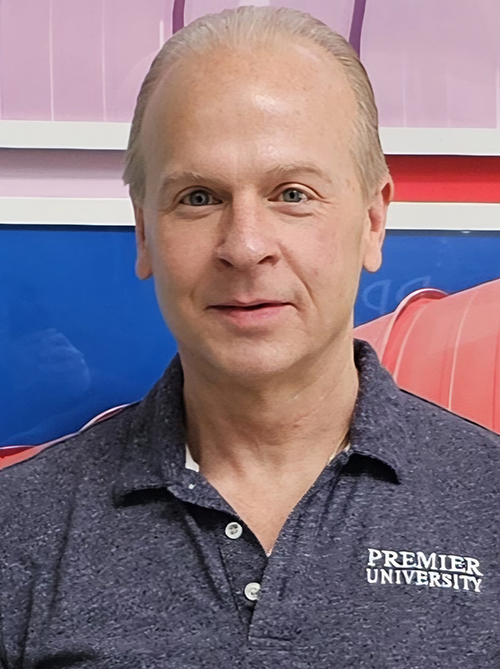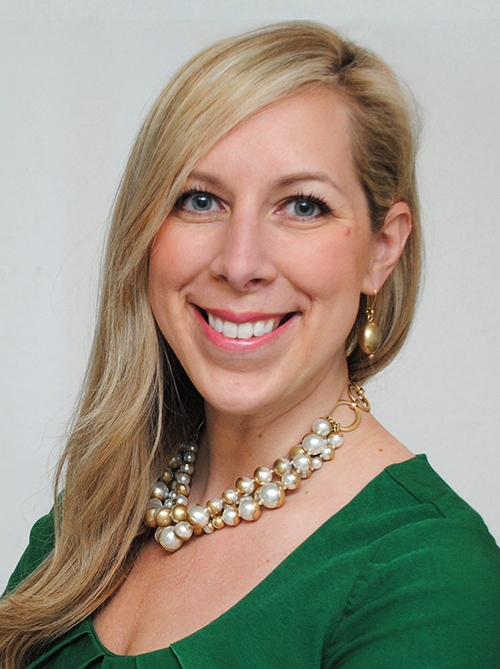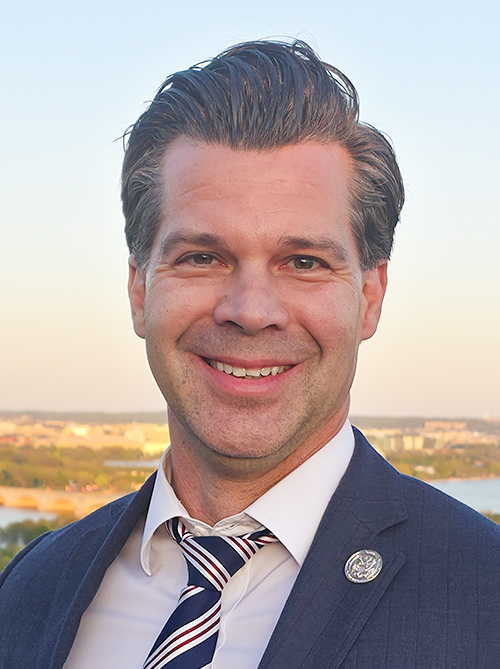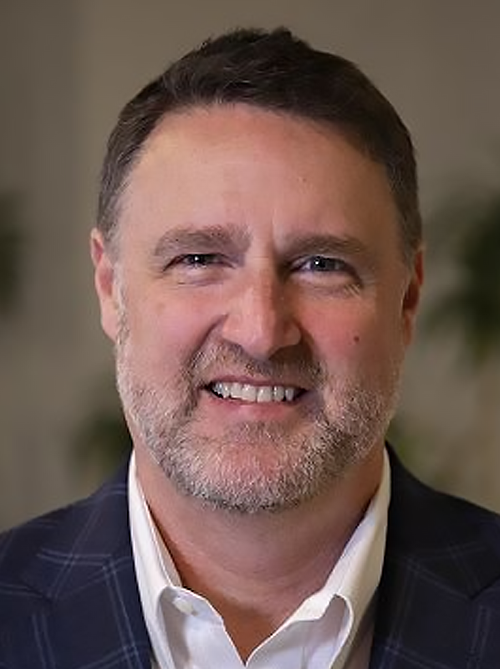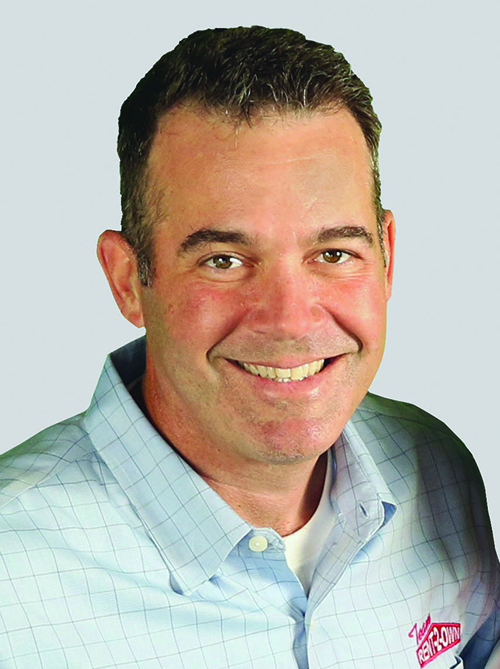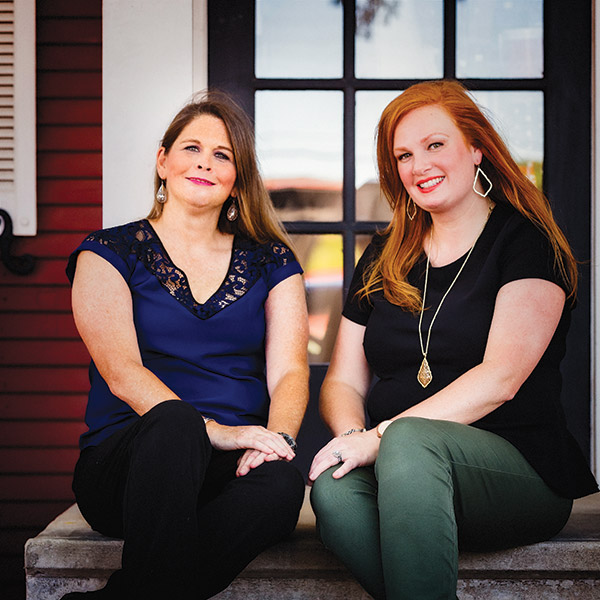
By Kristen Card | Photographs by Beau Brand
Alexa Kehl was diagnosed with type 1 diabetes when she was nine years old. Genetically linked type 1 diabetes happens when the immune system destroys the pancreatic cells that produce insulin. Not only do type 1 diabetics have to monitor and adjust their blood-sugar levels continually, but over time, the disease can damage nerves and blood vessels in their eyes, kidneys and heart. And that is what happened to Kehl. In 2003, 24-year-old Alexa wasn’t feeling well, so she went to her endocrinologist.
“He did some tests, and came back into the room and said, ‘We’re admitting you to the hospital immediately. Your kidneys are currently working at only 12 percent; they are shutting down,’” Kehl recalls. “The next morning, I had surgery to put in a port for dialysis and began treatments later that day. Dialysis was really difficult—I lost weight quickly due to the strict diet, the site where my port was inserted kept getting infected and there were other complications. In dialysis, you sit there and watch all of your blood get cycled out of your body, cleaned and drained of excess fluid, then returned to your body. It was a three-and-a-half-hour process, and I did it three days a week for a year. A year full of tears.”
In 2004, Kehl’s mom was approved to donate one of her kidneys to her ailing daughter. The transplant was a complete success, Alexa felt great and was able to resume a relatively normal life.
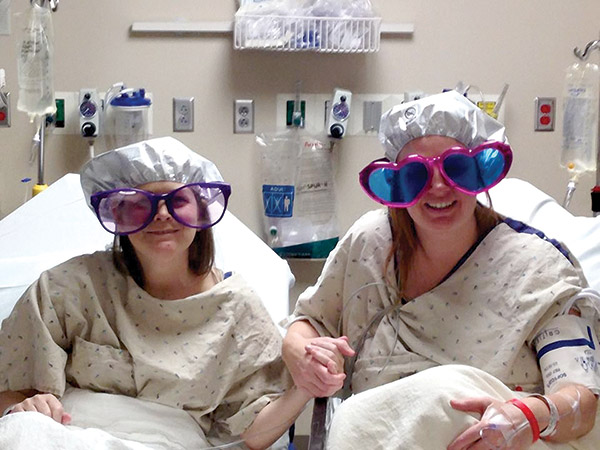 A few years later, Kehl was looking to change jobs, from radio station marketing and promotions to…something else. She saw a job posting for Benefit Marketing Solutions, the rent-to-own industry’s leading provider of membership programs, and applied at their office in Norman, Oklahoma. She interviewed with two people, one of whom was her boss-to-be, Lanai Williams. Kehl began working at BMS in January 2008.
A few years later, Kehl was looking to change jobs, from radio station marketing and promotions to…something else. She saw a job posting for Benefit Marketing Solutions, the rent-to-own industry’s leading provider of membership programs, and applied at their office in Norman, Oklahoma. She interviewed with two people, one of whom was her boss-to-be, Lanai Williams. Kehl began working at BMS in January 2008.
“When Lanai and I began working together, my diabetes was worsening,” Kehl recalls. “Sometimes, my blood sugar would tank overnight and I wouldn’t wake up in the morning. The first time I didn’t show up for work and Lanai couldn’t reach me by phone, she nabbed a co-worker and came over to check on me. My car was out front, so they began banging on the front door and even the bedroom window, but they couldn’t wake me. Luckily, I was staying with a cousin and she came home and let them in.”
Lanai Williams quickly learned the procedure for rousing a hypoglycemic Kehl, and was trusted with a house key. Over the next several months, this personal connection between the two women grew into a deep and abiding friendship. Kehl and Williams’ relationship evolved from professional colleagues at BMS to nearly inseparable BFFs. “We were both single and we enjoy the same things,” Kehl explains. “We like to eat out, go shopping, go to crafting shows. Lanai sings, so we go to karaoke and she performs and I pretend to be her manager. We enjoy live music, so we’ve been to several concerts together and traveled together. In 2012, we went to Japan! We just clicked.”
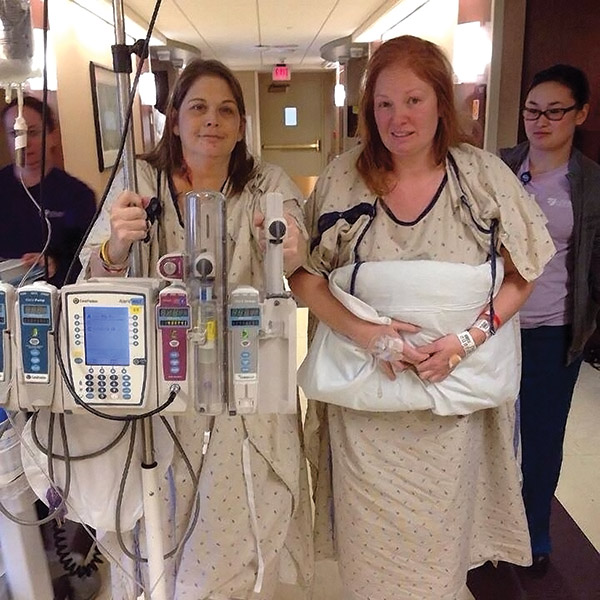 In 2010, a pair of eerily similar tragedies cemented the women’s bond. Both women’s fathers were killed in separate car accidents not even a month apart. “I remember sitting at the hospital and watching Alexa cry and cry and cry, and thinking that I couldn’t imagine the pain she was feeling and wishing I could do something to bring her some comfort,” Williams recalls. “Who knew that within just a few weeks, our roles would be reversed?”
In 2010, a pair of eerily similar tragedies cemented the women’s bond. Both women’s fathers were killed in separate car accidents not even a month apart. “I remember sitting at the hospital and watching Alexa cry and cry and cry, and thinking that I couldn’t imagine the pain she was feeling and wishing I could do something to bring her some comfort,” Williams recalls. “Who knew that within just a few weeks, our roles would be reversed?”
“When we were at the hospital with Lanai’s dad, her family was in a meeting with the doctors,” Kehl remembers. “And Lanai came out and told me they were donating all of her dad’s organs. That was huge to me.”
Just one month later, Kehl was put on the waiting list for a pancreas transplant at the University of Nebraska Medical Center. She waited only two months before a match came up, and she underwent her second successful transplant. But while Kehl now had a functioning pancreas, she suffered some subsequent complications that damaged the kidney she had received from her mom. In 2013, the kidney began to shut down and Kehl felt like she was back at square one. Several people, including Williams, tested to see whether they might be a match for Kehl, but none were.
“I was terribly disappointed after so much testing to be told I wasn’t a match,” Williams confides. “I’ve got the universal-donor blood type [type O positive], so I thought it was a no-brainer. I was disheartened, as was Alexa. So I decided to do a paired donation to get Alexa a kidney.” A paired donation meant Williams would donate her kidney to someone she matched with who had a friend or family member who matched with and was willing to donate to Kehl. It also meant more wait lists and timing challenges, but it was worth a try.
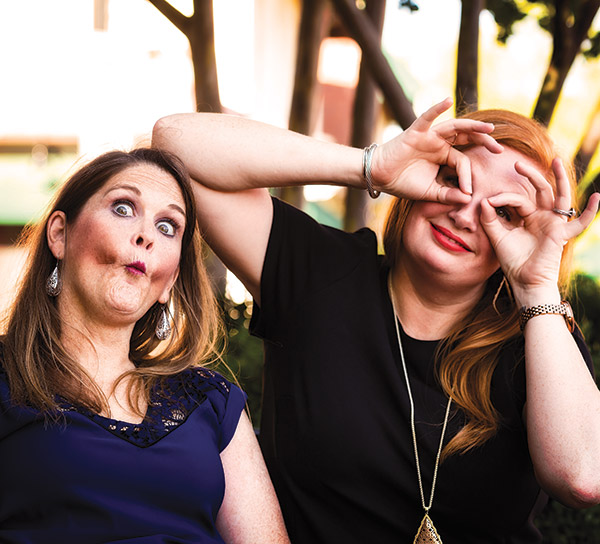 Then, during Williams’ final testing for the paired donation, she was given miraculous news. Due to some blood transfusions that Kehl had undergone, the women were now, somehow, a match. Williams was stunned. “I met Alexa and her mom in the lobby, and Alexa said, ‘You look like you’ve seen a ghost. Are you going to be sick?’” Williams recounts. “I wanted to get them alone to tell them, so I hurried them onto the elevator. I couldn’t control my emotions, I could hardly get the words out. They were stone silent and I thought, Why isn’t anyone saying anything? But then the crying and hugging started, and it essentially lasted the whole seven-and-a-half-hour car ride back home to Oklahoma.”
Then, during Williams’ final testing for the paired donation, she was given miraculous news. Due to some blood transfusions that Kehl had undergone, the women were now, somehow, a match. Williams was stunned. “I met Alexa and her mom in the lobby, and Alexa said, ‘You look like you’ve seen a ghost. Are you going to be sick?’” Williams recounts. “I wanted to get them alone to tell them, so I hurried them onto the elevator. I couldn’t control my emotions, I could hardly get the words out. They were stone silent and I thought, Why isn’t anyone saying anything? But then the crying and hugging started, and it essentially lasted the whole seven-and-a-half-hour car ride back home to Oklahoma.”
This incredible turn of events meant that not only could Williams donate her kidney directly to her dear friend, but it could also happen immediately—no more wait lists, no more dialysis.
On January 29, 2014, the women arrived for the transplant surgery. Kehl was cool as a cucumber—this wasn’t her first rodeo, after all. Williams, on the other hand, had never even ridden a horse, figuratively speaking. “I was pretty nervous going into it,” she confesses. “I had never had any type of medical procedure; the worst thing I had experienced up to that point was strep throat, which didn’t involve anesthesia or scalpels. So I focused on how it was going to be life-changing for Alexa. It was such a huge thing for her not to have to spend her life in hospitals, undergoing procedures because her body was failing her.”
The transplant was a success all the way around. Williams went first for her laparoscopic kidney removal, followed by Kehl’s much more involved and lengthy surgery. “As I woke up in recovery, they rolled Lanai’s bed directly in front of mine and she said, ‘Friend, my kidney is doing better in you than it was in me,’” Kehl notes. “I just remember being so, so happy.”
Today, Kehl and Williams aren’t as close proximity-wise as they once were. After 13 years with Benefit Marketing Solutions, Williams moved to Oklahoma City for a career change to banking. And, just a few months after the transplant, she also met her future husband; the couple will be married later this summer.
But what rent-to-own brought together has become a relationship that will last the rest of these women’s lives. They are self-proclaimed “blood sisters” who are connected on a profound and permanent level. And of course, Kehl will be standing beside her bestie at the altar come August.
“There is something exceptionally special about your best friend being willing to give up a physical part of herself to save your life,” Kehl affirms. “That is pure selflessness. There is no way I can ever repay Lanai for her grand gesture. I just keep living life for today and taking good care of her kidney.”
“She needed something and I had it, so I gave it to her,” Williams concludes. “If a neighbor came to my house needing a cup of sugar and I had a cup of sugar, I would give it to her. I realize in some ways, it’s not at all the same thing, but in my eyes, it was. When you care about someone this much and they need something that much, you’ll move mountains to make sure they get it.”
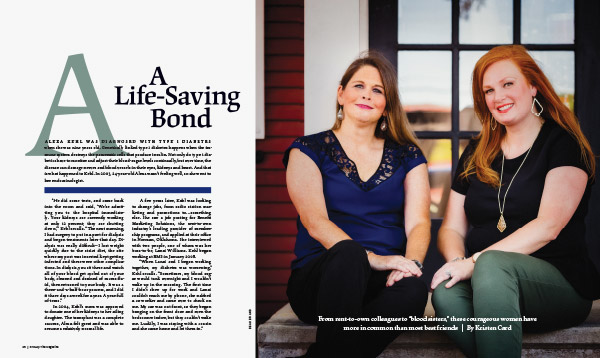 Click here to read the original article from RTOHQ: The Magazine in digital form.
Click here to read the original article from RTOHQ: The Magazine in digital form.
Kristen Card is a freelance business writer based in Austin, Texas.






